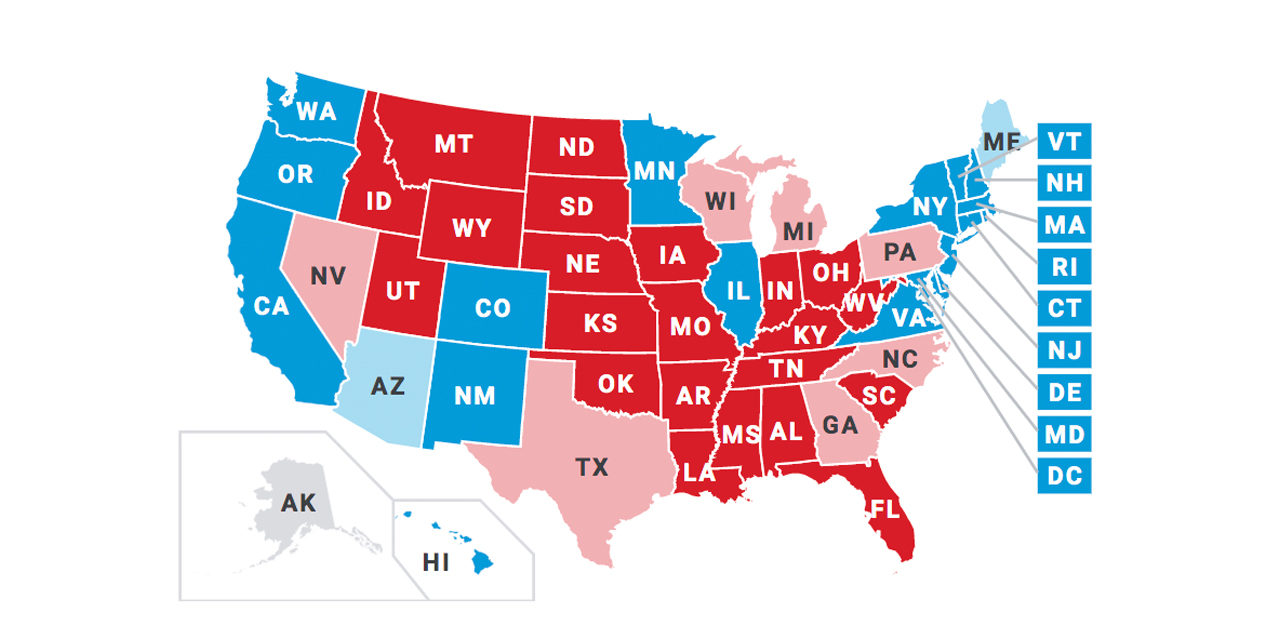In the race to 270 electoral votes, the race for president, as of 1 a.m. Eastern on November 4, looks as though it’s going to come down to the states of Pennsylvania and Michigan. Because of extended dates to receive mail-in ballots and other issues affecting the counting of ballots, several other states are still too close to call, including Georgia and North Carolina.
The president outperformed the polls in Florida, where he is the projected winner by approximately 3%. The last Real Clear Politics average there had Joe Biden leading by 1%.
But the president fell behind early in Arizona, a state he won in 2016. In fact, at one point Fox News called the state for Biden but received considerable pushback from the Trump campaign, which believes the remaining uncounted votes were cast on Election Day, and will break heavily in Trump’s favor. Trump took Texas and Iowa comfortably, even though those states were considered in play for Biden. If Trump maintains the narrow leads he holds in Georgia and North Carolina, all eyes will then be on Pennsylvania and Michigan.
If Georgia and North Carolina break in favor of Trump, the electoral college status, not counting Pennsylvania and Michigan, puts Biden at 254 electoral votes and Trump at 247. If that happens, Biden needs only one of those states to get to 270, while Trump needs to win both.
In the battle for control of the Senate, Democrats needed to pick up a net of either three seats plus the White House – which would allow the Vice President to break a tie – or four seats if Biden loses. The Democrats lost a seat in Alabama, where Sen. Doug Jones, the incumbent, lost to Republican Tommy Tuberville. But they picked up seats in Arizona, where Democrat Mark Kelly beat the Republican incumbent, Sen. Martha McSally, and in Colorado, where former Governor John Hickenlooper unseated Republican Sen. Cory Gardner. Other Republicans considered vulnerable, including Lindsey Graham of South Carolina, Thom Tillis of North Carolina, Joni Ernst of Iowa, Steve Daines of Montana and Susan Collins of Maine, all won reelection, thus securing continued Republican control of the Senate.
Although Democrats were predicted to pick up seats in the U.S. House of Representatives, it looks like the net result will be either no gains for Democrats or even a few pickups for Republicans.
This story will be updated as new information becomes available.
Photo from Google
Visit our Election 2020 page






